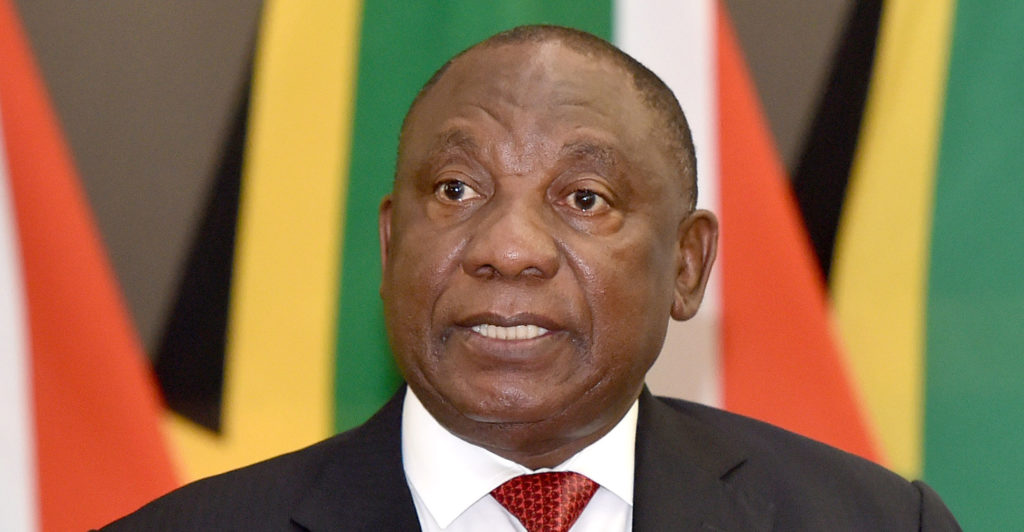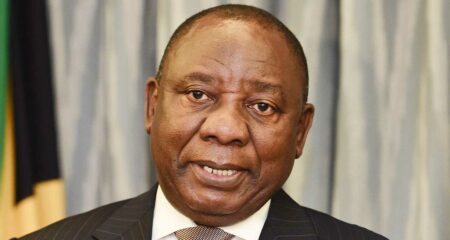
President Cyril Ramaphosa defended his track record on reform and said policy measures being implemented by the government will yield stronger economic growth in time.
Ramaphosa, 67, is facing a growing chorus of criticism that he’s taking too long to reverse nine years of misrule by his predecessor Jacob Zuma that hobbled the economy. The state’s inability to undertake reforms has been constrained by infighting over policy direction within the ANC.
The presidency cited the rebuilding of key state institutions, along with policy and regulatory reforms in the oil, gas, mining and telecommunications industries as examples of the “substantial progress” his government has made.
“It is not realistic to expect these interventions to yield immediate results,” Ramaphosa’s spokeswoman, Khusela Diko, said in an e-mailed response to questions. “There is often a delay between the decision to change a regulation and the moment when change takes effect. Government is confident, however, these reforms will have a measurable impact on growth and jobs as they take root.”
South Africa’s economy is expected to expand less than 1% this year, according to the International Monetary Fund and the World Bank. The ANC has fallen short on previous pledges to ignite economic growth and tackle a 29% unemployment rate, mainly because state power utility Eskom can’t generate enough power.
Crisis at Eskom
The crisis at Eskom is one of the biggest challenges Ramaphosa has faced since he was appointed president in February 2018. The utility has more than R450-billion of debt and has struggled to maintain ageing power plants or build ones.
“The operational and financial crisis at Eskom has had a devastating impact across the economy and exacerbated pressure on a fiscus that is already under great strain,” Ramaphosa said. “It is for this reason that government has adopted a turnaround plan to restore good governance, prudent financial management and operational efficiency at Eskom.”
The appointment of new management is among indicators of the state’s ongoing efforts to bring on board skilled, qualified and “fit-for-purpose individuals” to stabilise the power utility, he said.
Ramaphosa also cited the success of his government’s drive to boost foreign investment as a sign of progress. His plan to raise US$100-billion in five years has already reached almost 50% of its target within two years, he said. — Reported by Amogelang Mbatha, (c) 2020 Bloomberg LP




